CAREERS IN CONSERVATION AND THE OUTDOORS
January 28, 2022
ONLINE RESOURCES TO FIND WORK
I’m currently on a career pivot journey from U.S. Army officer to conservation, sustainable development, and the outdoors.
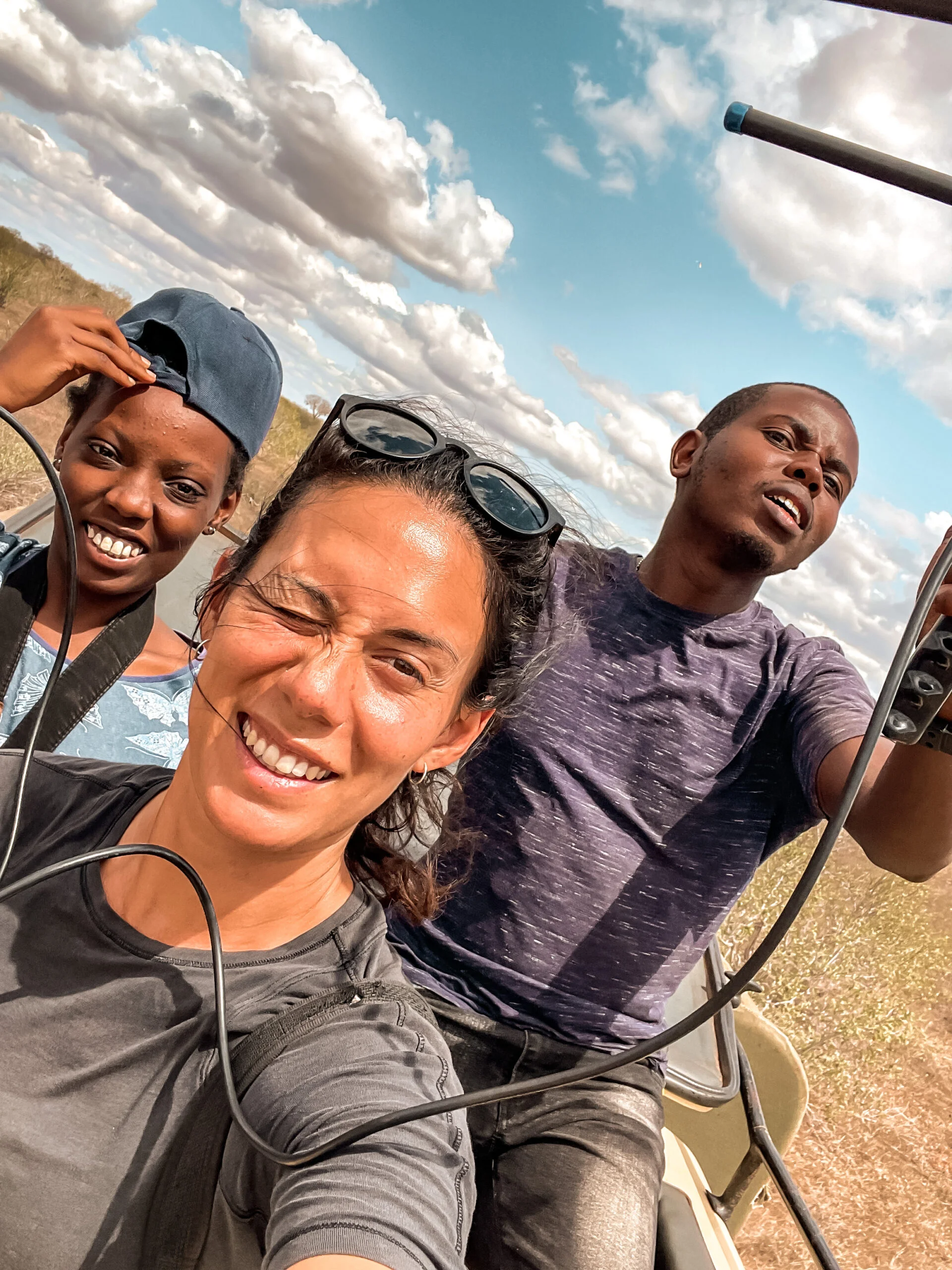
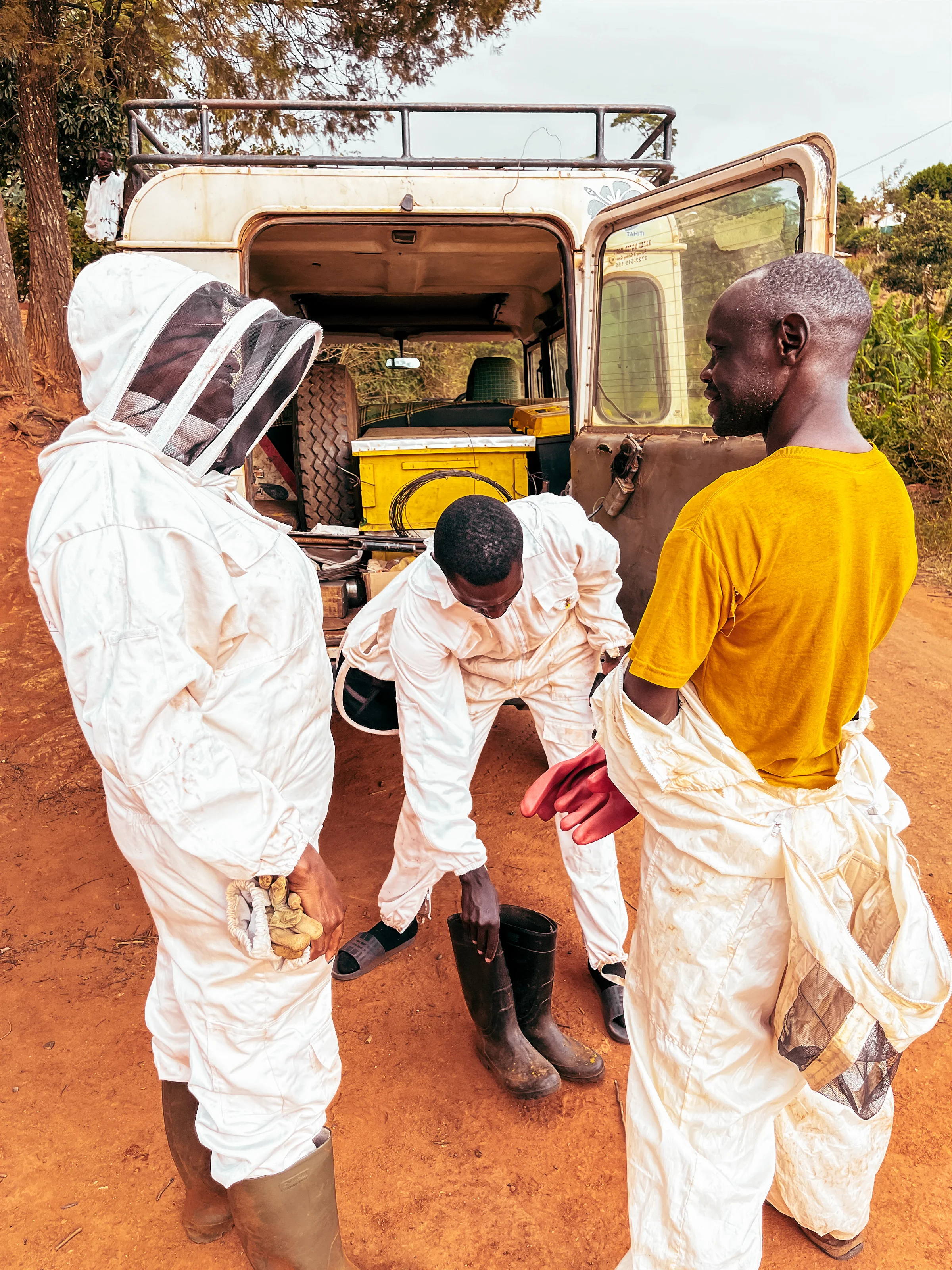
Tracking elephants and keeping bees with these gangsters. Tsavo National Park and Sagala Hills, Kenya.
Because I had a deliberately planned period of unemployment after I quit my job and was traveling the US in my van and hanging out, I had plenty of time to do extensive research on where to I could begin to accumulate professional experience. I know many people don’t have this luxury and may have financial pressures, family obligations, or simply want to get their career started right away. So, while I’ve done this research to educate myself, I want to share this information because I think it’d be useful to others as well.
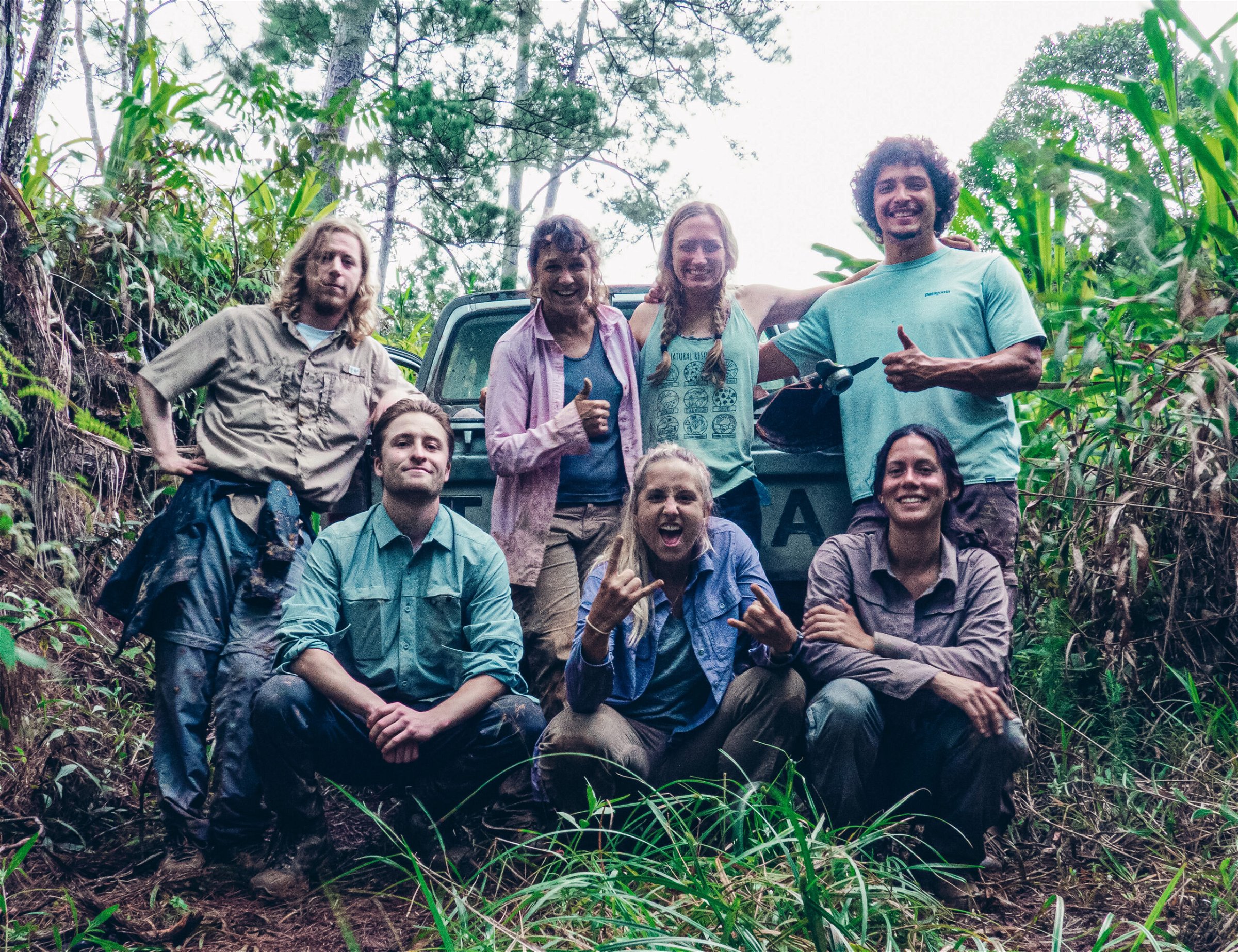
Hiking to high ground to radio a recovery vehicle, lots of pushing and spraying mud, a tow strap, and over an hour later, we got this beat-to-shit Toyota pickup unstuck. Mountain Pine Ridge Forest, Belize.
For now, I’m going to use this article as a living document where I can list resources I’ve found to be credible and legitimate. As always, do your own research as well. As someone transitioning to this field, I certainly don’t have all of the answers, and I could very realistically be wrong or unintentionally give poor advice. But, I’m going to do my very best to provide you with relevant information you can apply today. If you know of other resources that might be helpful to add to this list, please do let me know! I’m trying to build this out to be useful for as many people as possible. I’ve got multiple projects I’m working on right now to try to bridge some of the information gaps I’ve personally observed on this journey. Hopefully this will evolve into something more functional as it progresses, but for now, it’s simply a list. Best of luck to you on your search!
JOB RESOURCES
- Texas A&M University Wildlife and Fisheries Job Board. This site is my personal favorite. I’m biased because it’s the website I used to find two out of four of the internships that I participated in. According to their FAQ page, the site lists “jobs posting are related to aquaculture, wildlife, fisheries, environment, ecology, natural resources, conservation, biological sciences, life sciences, and outdoor recreation.” I like this site for a few reasons. It’s very user-friendly; it’s sponsored by a university and to me, that gives it a bit more credibility; and it has a ton of options and gives you the ability to filter those options. You can search for full-time, part-time, seasonal, and volunteer positions–to name a few. On this site I found the Costa Rican non-profit sea turtle conservation project and the Virginia Tech Jaguar conservation project.
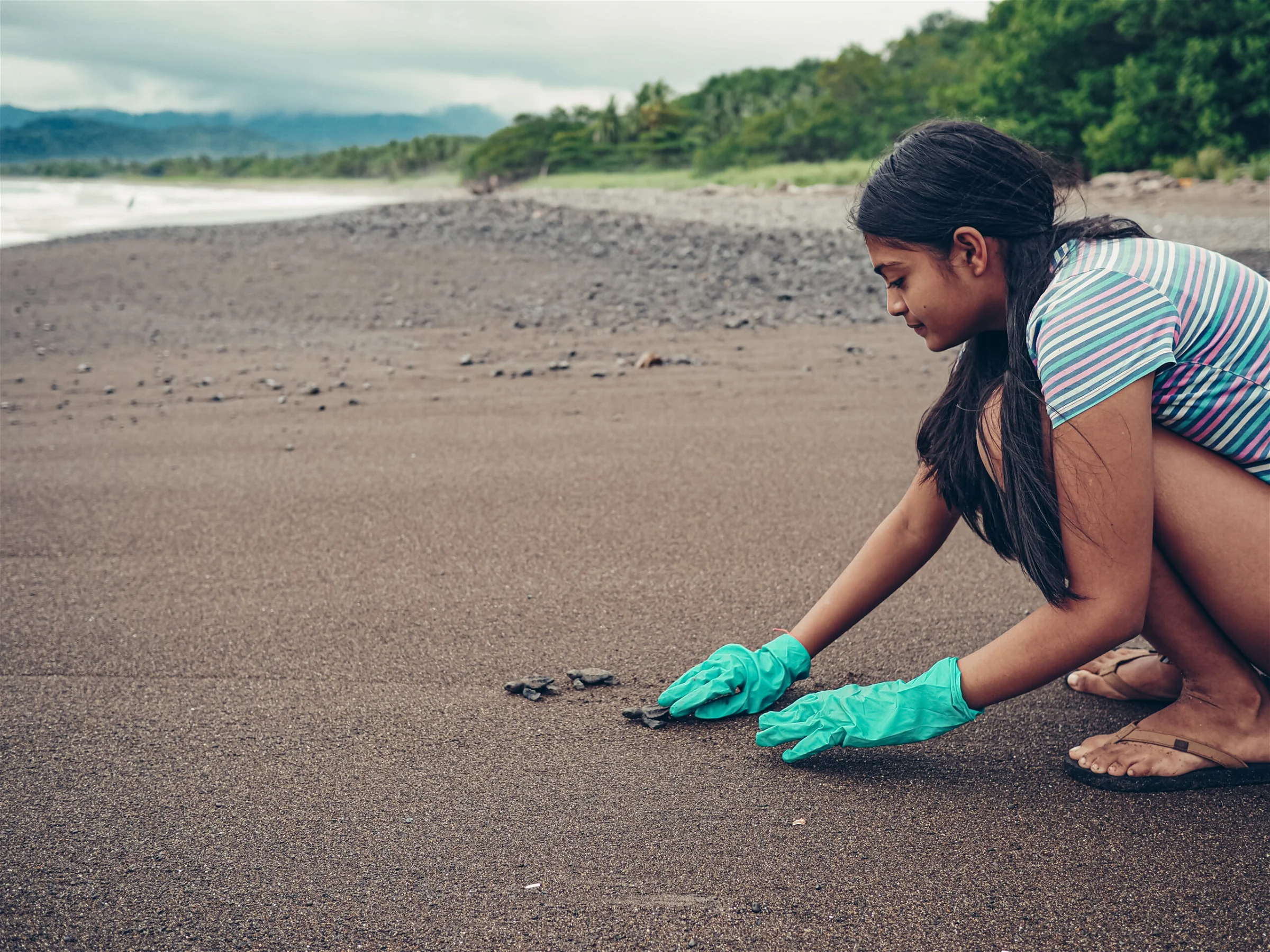
Releasing sea turtle hatchlings on a secluded beach in Costa Rica with youth from the local community. Bejuco, Costa Rica.
- Society for Conservation Biology (SCB) is a non-profit, 501(c)(3) organization dedicated to facilitating, promoting, and advancing the scientific study and conservation of biological diversity. This site lets you search for jobs by title and location and has position listings in academia/research, nonprofit, aquarium/zoo/botanical, consultancy/private sector, training/education, and government. Happy job hunting!
- Occupation Wild is a “job board for the outdoor, adventure, and travel industry, founded in 2018 on the belief that if it’s just for a season or for a lifetime, there is nothing more rewarding than working in the outdoors. Spearheaded by travelers and outdoor professionals, Occupation Wild’s easy to navigate platform and growing audience of outdoor enthusiasts attracts some of the best companies in the outdoor industry.” This site lets you search for seasonal work, jobs that provide housing, national park jobs, guide and trip leading, conservation corps, and year-round jobs. On this particular site, I didn’t see volunteer or intern positions, but if you’re searching for paid work, this is a great place to find it. Courtney Condy and Nick Watts of Occupation Wild also host a podcast where they connect with people doing interesting things in the outdoors.
- Conservation Job Board’s mission is simple: Help conservation professionals discover great employment opportunities in ecology, wildlife, forestry, marine biology, environmental education, and related fields. You can check their site, where you can filter by location, categories like botany or outdoor recreation, and type of position (permanent, paid internship, etc). If you want to stay up to date, I would suggest following their Facebook page here.
- Environment for the Americas connects diverse people to birds and nature and inspires the next generation of conservationists by connecting diverse people to nature and to the protection of birds and their habitats. They offer internships for racially and ethnically diverse students, recent graduates, and veterans. Perusing the list on their website, many of these internships offer stipends and housing, and range from everything from biology assistant to astronomy assistant to GIS assistant. You can apply for Environment for the Americas internships if you are 18-30 years old or up to 35 years old if you’re a veteran.
- Mobilize Green is “looking for students and graduates who want to help build a better future for all.” According to their website, they “are committed to creating a diverse conservation workforce and diverse applicants with relevant education or experience are encouraged to apply.” Their target audience is young people from diverse backgrounds. There were only ten positions listed when I checked the site, but it’s definitely worth looking. The unique part about Mobilize Green is that they offer a $400-600 per week stipend, when most of the internships and volunteer positions I’ve found require the volunteer to pay. That may sound completely backwards, but this “pay-to-play” phenomenon is just how volunteering and internships work in the conservation community. The lines between internships vs volunteering vs voluntourism vs wildlife tourism often become blurred, and this has the potential to become problematic. I plan on digging into this in future articles.
- Corps Network. “Corps are organizations that engage young adults and post-9/11 veterans in service addressing conservation and community needs. Through a defined term of service, Corps participants – or “Corpsmembers” – gain work experience and develop in-demand skills. Founded in 1985, The Corps Network is the National Association of Service and Conservation Corps. We support Corps through advocacy, providing access to funding and projects, and offering expertise in Corps operations.” They have a comprehensive list of Corps on their website that you can browse with the interactive map or by scrolling through the list that’s organized by state.
- USAJOBS is a government job listing website that offers a variety of outdoor jobs. I didn’t really find a way to filter results specifically for outdoor jobs on the site, but in the search bar you can query words “wildlife,” “outdoor,” or “park,” and get a ton of results! Additionally, you can search for a specific agency, like “Bureau of Land Management,” and get a lot of results. You can also search for “internships,” and from what I read, nearly all of them are paid. Not all of these jobs are necessarily open to the public, and some have security clearance requirements or other criteria, so just make sure you read through everything if you find a job or internship that interests you! If you’re transitioning out of the military or are a veteran, this site might be of particular interest, because if you are able to land a federal job, it will potentially enable you to “buy back” your military time when you reach retirement and access additional benefits.
- Facebook. This may not seem like the first place you’d go to look for information or jobs, but there is a wealth of knowledge here, to include internship, volunteer position, and job listings. Some of these groups aren’t public and you have to join. The links I’ve posted are the links to the groups when I’m logged onto my personal Facebook, so if the link doesn’t work for some reason, you can search for the groups using the exact wording I used below, and you’ll find them. Here are some of the groups I’d consider joining: Wildlife Science Career Network, Conservation Jobs: Africa, Wildlife Workers’ Network, Environmental/Conservation Opportunities in South Australia, Careers in Nature Conservation, Environmental Job Opportunities SEA: Internships, Volunteers, Learning (SEA is Southeast Asia).
- JBLM Fish and Wildlife. For any active duty US military members who are currently planning their civilian transition, check out the article I wrote on the JBLM Fish and Wildlife Internship. It’s an internship that you can do either through Career Skills Program (Army transition internship program), or by getting a memorandum signed by your boss (what I did). I also know there have been people from other branches who have been able to do this internship as well, so if you’re not in the Army, don’t dismiss this opportunity. Additionally, you don’t have to be stationed at Joint Base Lewis-McChord. It won’t necessarily be easy, but you can still do this internship if you’re at a different base or duty station. All of the details are in the article!
- Finally, I share job, internship, and experience opportunities that I come across related to conservation on my Instagram.
I hope you find these resources beneficial. If an organization that interests you doesn’t appear to have any openings or volunteer positions, I’d encourage you to contact them anyway. Take some initiative. The worst thing they can say is no, so don’t be afraid to put yourself out there! Happy hunting!
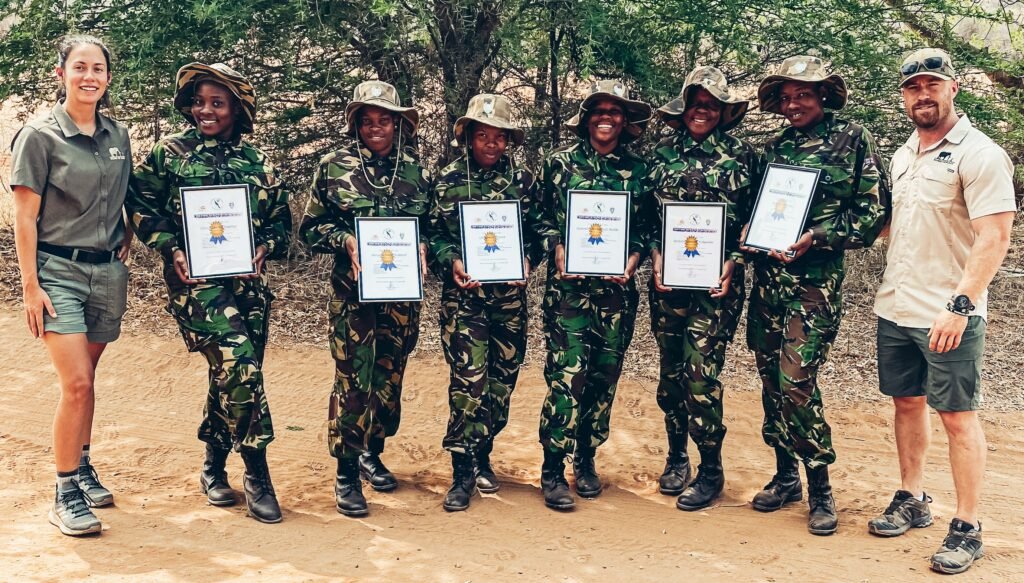
Wildlife rangers who just finished their initial entry training. Limpopo, South Africa.
